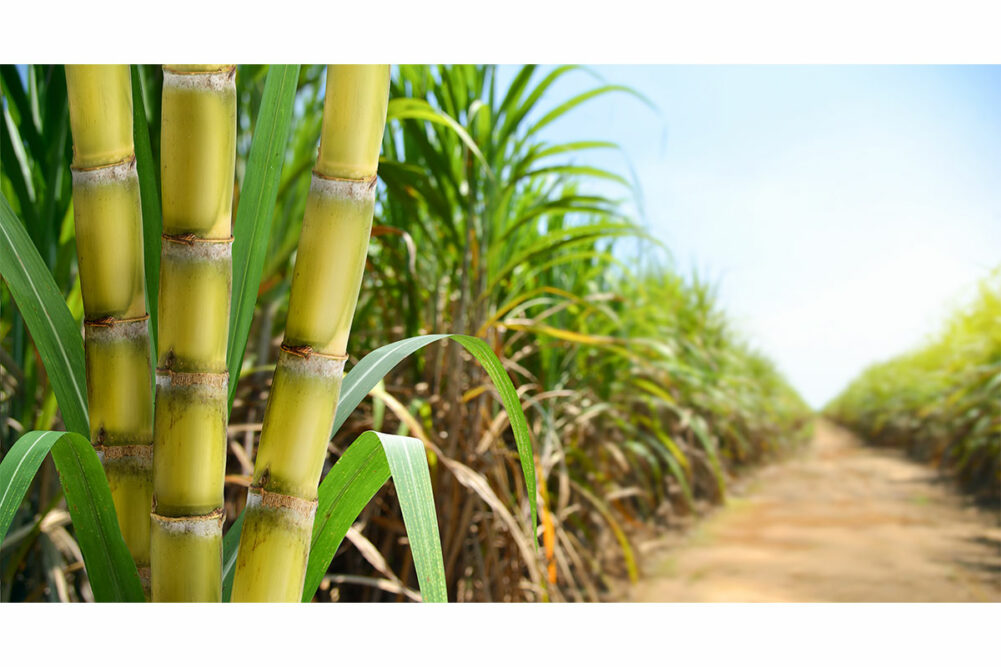The Environmental Impact of Growing Sugar and Cane in Various Regions
The Environmental Impact of Growing Sugar and Cane in Various Regions
Blog Article
Why Cane Sugar Handling Chemicals Are Important for Modern Sugar Refining
The duty of cane sugar processing chemicals in modern sugar refining can not be overstated, as they are indispensable to enhancing both the effectiveness of extraction and the general high quality of the final product. Agents such as phosphoric acid and particular flocculants are utilized to eliminate impurities, resulting in sugar that not just satisfies customer expectations however likewise sticks to sector criteria.
Role of Handling Chemicals
The efficacy of walking stick sugar processing hinges dramatically on the strategic application of processing chemicals. These chemicals play a pivotal function in boosting the performance and top quality of sugar removal and refining. From the initial stages of juice removal to the final filtration actions, processing chemicals facilitate different critical procedures.
In the extraction phase, chemicals such as phosphoric acid and calcium hydroxide are utilized to optimize the clarification process, assisting to remove pollutants and put on hold solids from the walking stick juice. This not just boosts the return yet likewise ensures the clearness of the end product. Additionally, agents like flocculants aid in the fast settling of impurities, consequently improving the total procedure.
Activated carbon and ion exchange resins offer to get rid of shade and smell, making sure that the refined sugar satisfies customer top quality requirements. Therefore, the thorough option and application of these chemicals are crucial for accomplishing ideal results in walking cane sugar handling.
Key Types of Chemicals
Walking cane sugar processing counts on a variety of crucial chemicals that facilitate each phase of manufacturing. These chemicals play crucial duties in making clear, whitening, and detoxifying the sugar extracted from cane.
One primary classification of chemicals consists of flocculants, such as polyacrylamide, which help in the clarification process by advertising the gathering and settling of impurities. Furthermore, calcium hydroxide is usually employed to reduce the effects of level of acidity and aid in the removal of non-sugar elements.
Bleaching representatives, such as turned on carbon and sulfur dioxide, are used to decolorize the syrup, causing a more clear end product. These chemicals assist remove color substances that may influence the sugar's appearance and bankability.
Furthermore, phosphoric acid acts as a pH regulatory authority during the handling phases, making sure optimal problems for the enzymatic tasks included in sugar removal and filtration.
Other important representatives include edta (ethylenediaminetetraacetic acid), which chelates steel ions that can militarize unfavorable responses, and salt hydroxide, which aids in pH control throughout the refining process. Jointly, these chemicals improve efficiency and make sure a premium walking cane sugar item.
Benefits for Sugar Top Quality
Commonly neglected, the usage of particular handling chemicals considerably boosts the overall high quality of walking cane sugar. These chemicals play a critical duty in refining procedures, ensuring that the last product satisfies rigid industry standards for pureness and preference.

Additionally, processing chemicals aid in attaining a regular granulation and appearance, which are important for customer acceptance. By regulating the condensation procedure, these chemicals make sure that the sugar crystals develop evenly, bring about a more attractive item that liquifies well in various applications.
Furthermore, the usage of these chemicals can boost the rack life of cane sugar by minimizing wetness absorption and microbial growth. On the whole, the strategic application of processing chemicals is necessary for providing top quality cane sugar that fulfills consumer expectations and industry needs.
Ecological Impact Factors To Consider

In addition, the energy-intensive nature of sugar refining, intensified by chemical use, commonly leads to see this site boosted carbon exhausts. This adds to climate adjustment and elevates worries pertaining to the sustainability of current refining methods. In addition, the sourcing of these chemicals may involve techniques that endanger biodiversity, such as monoculture farming, which decreases the resilience of agricultural environments.

To reduce these effects, sugar refiners are significantly discovering lasting alternatives and taking on best practices that minimize chemical use. Implementing strenuous ecological monitoring systems can help make sure that the refining procedure aligns with ecological standards and promotes biodiversity. Eventually, a well balanced technique that focuses on both sugar high moved here quality and ecological stewardship is important for the lasting practicality of the sugar sector.
Future Fads in Refining
As the sugar industry grapples with the ecological challenges connected with traditional refining techniques, innovative strategies are emerging to improve both efficiency and sustainability. One significant fad is the adoption of environment-friendly chemistry principles, which focus on making use of safe, biodegradable processing chemicals. This shift not just minimizes environmental effect yet likewise addresses consumer need for cleaner production approaches.
Another encouraging advancement is the implementation of advanced filtration innovations, such as membrane separation and adsorption procedures. These methods improve the clarity and top quality of the sugar while reducing the volume of wastewater generated during refining. Furthermore, the integration of electronic technologies, consisting of IoT and AI, is changing functional performance by making it possible for real-time tracking and predictive upkeep, thus reducing resource waste.
Additionally, the use of by-products from sugar refining, such as bagasse and molasses, is obtaining traction. These products can be exchanged biofuels or value-added items, adding to a round economic situation within the sector. Collectively, these fads signal a change towards even more lasting practices that not just enhance operational efficiency however additionally align with international sustainability goals, making certain the future practicality of sugar refining.
Conclusion
Cane sugar handling chemicals are vital in contemporary sugar refining, substantially improving the performance and quality of sugar extraction. The critical use of these chemicals not only boosts the pureness and flavor of the last product yet likewise makes certain regular condensation and appearance. As the industry progressively prioritizes sustainability, the fostering of environmentally-friendly processing representatives is likely click to read to form future fads in refining, ultimately bring about better items and prolonged service life for consumers.
:max_bytes(150000):strip_icc()/canesugarBURCUATALAYTANKUT-42971cd7f8b84b4fb756984c18728339.jpg)
Inevitably, a well balanced strategy that focuses on both sugar quality and environmental stewardship is vital for the long-lasting practicality of the sugar sector.
Walking stick sugar handling chemicals are essential in contemporary sugar refining, dramatically improving the efficiency and high quality of sugar extraction.
Report this page